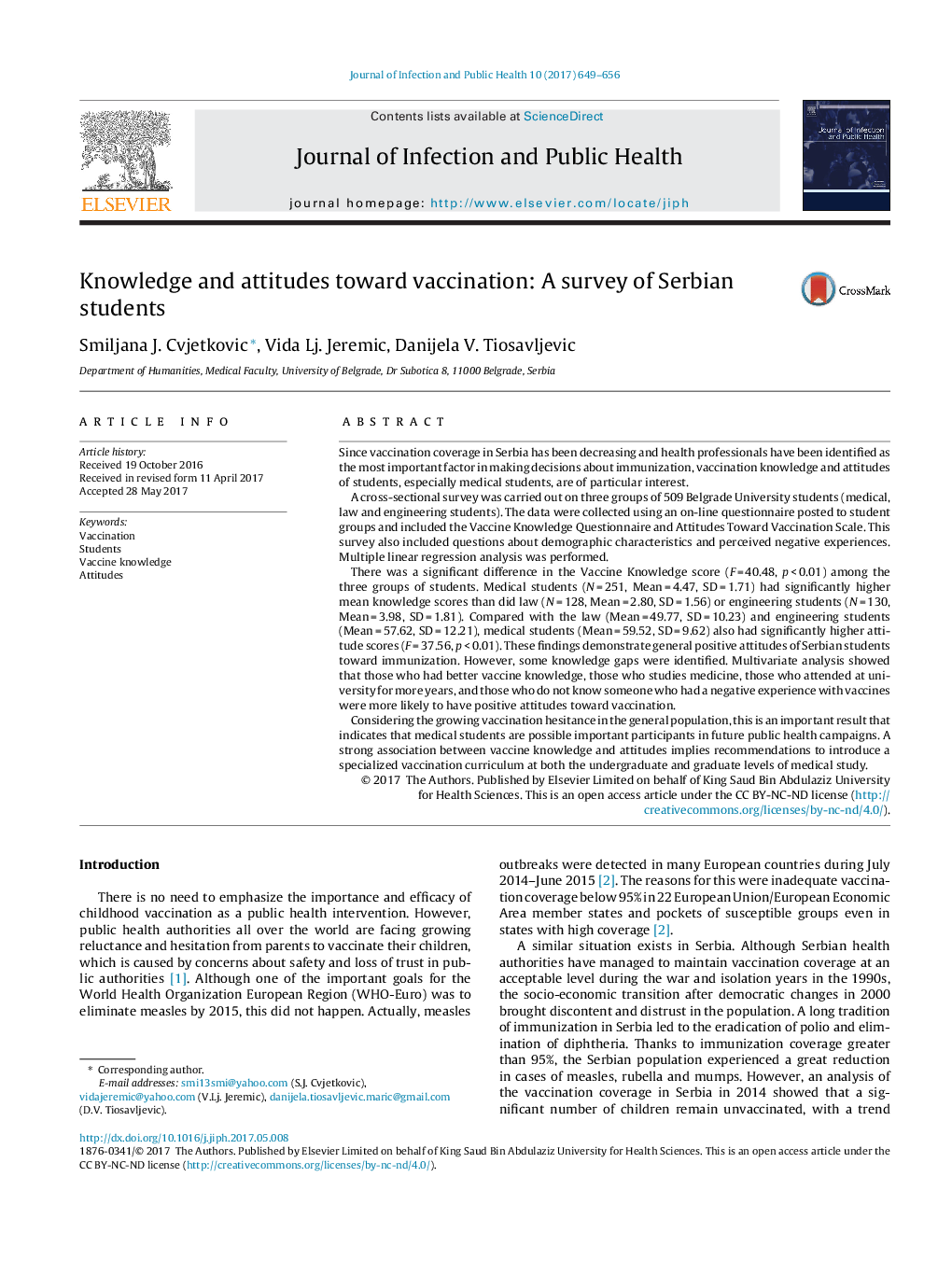| Article ID | Journal | Published Year | Pages | File Type |
|---|---|---|---|---|
| 5672758 | Journal of Infection and Public Health | 2017 | 8 Pages |
Since vaccination coverage in Serbia has been decreasing and health professionals have been identified as the most important factor in making decisions about immunization, vaccination knowledge and attitudes of students, especially medical students, are of particular interest.A cross-sectional survey was carried out on three groups of 509 Belgrade University students (medical, law and engineering students). The data were collected using an on-line questionnaire posted to student groups and included the Vaccine Knowledge Questionnaire and Attitudes Toward Vaccination Scale. This survey also included questions about demographic characteristics and perceived negative experiences. Multiple linear regression analysis was performed.There was a significant difference in the Vaccine Knowledge score (F = 40.48, p < 0.01) among the three groups of students. Medical students (N = 251, Mean = 4.47, SD = 1.71) had significantly higher mean knowledge scores than did law (N = 128, Mean = 2.80, SD = 1.56) or engineering students (N = 130, Mean = 3.98, SD = 1.81). Compared with the law (Mean = 49.77, SD = 10.23) and engineering students (Mean = 57.62, SD = 12.21), medical students (Mean = 59.52, SD = 9.62) also had significantly higher attitude scores (F = 37.56, p < 0.01). These findings demonstrate general positive attitudes of Serbian students toward immunization. However, some knowledge gaps were identified. Multivariate analysis showed that those who had better vaccine knowledge, those who studies medicine, those who attended at university for more years, and those who do not know someone who had a negative experience with vaccines were more likely to have positive attitudes toward vaccination.Considering the growing vaccination hesitance in the general population, this is an important result that indicates that medical students are possible important participants in future public health campaigns. A strong association between vaccine knowledge and attitudes implies recommendations to introduce a specialized vaccination curriculum at both the undergraduate and graduate levels of medical study.
